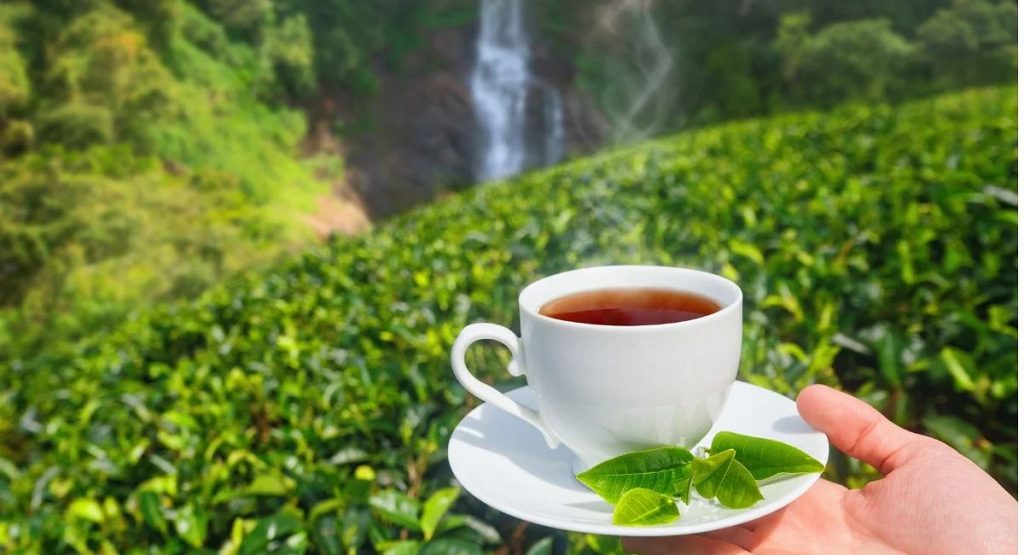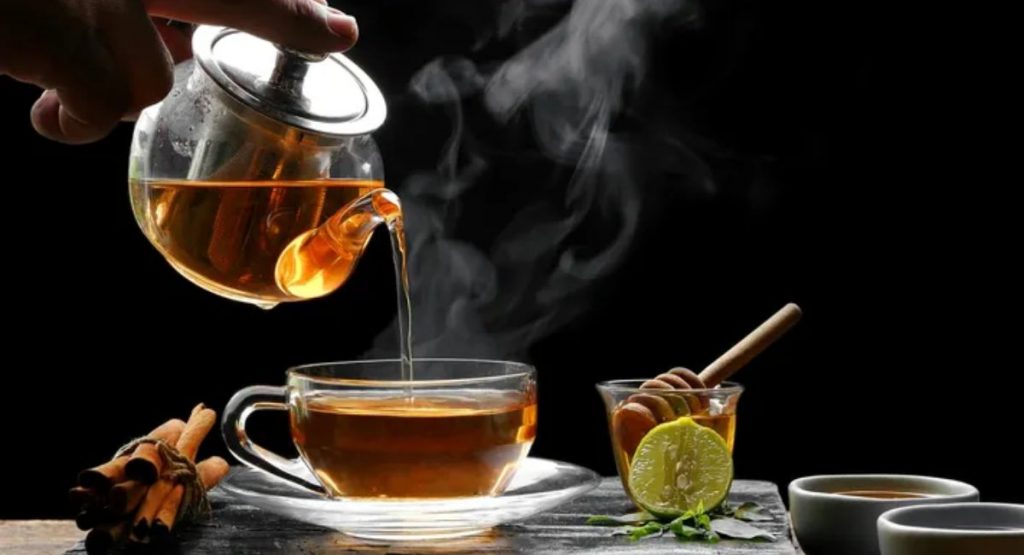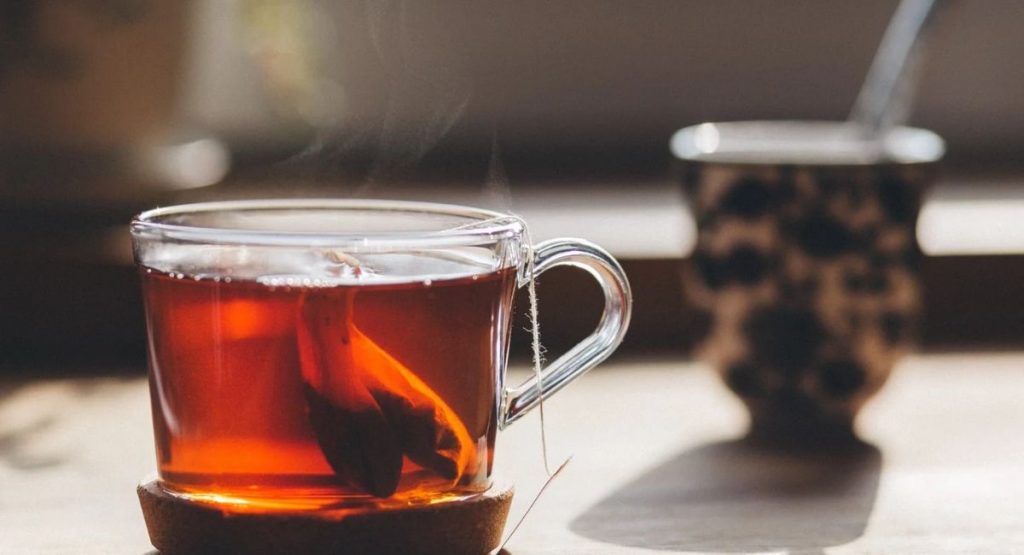Are you a tea lover and wondering if tea is halal or not? Tea has been enjoyed by cultures around the world for centuries. The consumption of tea generally falls under Islamic dietary laws, however, there are some considerations to be aware of when determining if drinking tea is Halal. In this blog post, we will discuss the religious implications of drinking tea, and explain the factors that determine whether or not it is considered halal. We will also provide some tips for ensuring your tea-drinking habits abide by Islamic dietary laws. So let’s dive in and learn more about is tea halal.
Tea

Tea is a popular beverage consumed all around the world. It can be found in many forms, from dried leaves to powdered mixtures. It is typically brewed by steeping tea leaves or powder in hot water for several minutes before straining and drinking. Depending on the type of tea used, it may have a mild or strong flavour, ranging from sweet to earthy. Tea has been enjoyed for centuries and is believed to have originated in China around 2737 BC.
The most popular types of tea are green, black, oolong, white and herbal. Green tea is made from unfermented leaves and is high in antioxidants that can benefit the body in many ways. Black tea is made from fermented leaves and has a stronger flavour than green tea. Oolong tea is partially fermented, with a unique flavour and aroma. White tea is made of young buds with silvery-white hairs and also contains high levels of antioxidants. Herbal teas are tisanes that are infused with the flavours of fruits, herbs, spices and even flowers.
Tea can be prepared in many ways, ranging from traditional methods to modern techniques. For example, the Gongfu method involves using a small teapot with several short infusions of tea over a period of time. The traditional English style, on the other hand, involves steeping tea leaves or bags in boiling water for several minutes before straining and drinking.
Tea is known to have many health benefits, including the ability to boost metabolism, reduce stress, improve mental alertness and even prevent some diseases like cancer, heart disease and diabetes. It can also provide a calming effect and help regulate body temperature. However, it should be noted that tea contains caffeine, so it should be consumed in moderation.
Overall, tea is a popular beverage that has been enjoyed for centuries and continues to be widely consumed today. With its many varieties and preparation styles, there is something to suit every taste. As it can also provide numerous health benefits when consumed in moderation, tea can be an enjoyable part of a healthy lifestyle.
Do Muslims Drink Tea?

When it comes to tea, the debate about Muslims and whether or not they drink it is far from settled. Some argue that there is nothing in Islamic teachings that forbid drinking tea, while others claim that consuming any type of hot beverage is haram (forbidden).
Islamic scholars have different opinions on the issue of drinking tea and its compatibility with the Islamic faith. Some argue that the consumption of any type of hot beverage is generally haram, and therefore tea should be avoided. Others believe it is permissible to consume tea as long as it does not contain any ingredients or additives that are forbidden in Islam such as alcohol or pork products.
At the same time, some Islamic scholars believe that tea in its natural form is not prohibited under Islam, and may even be beneficial for health. In this view, drinking tea is permissible as long as it does not contain any additives or ingredients forbidden in Islam such as alcohol or pork products.
In conclusion, there are a variety of opinions on the issue of whether Muslims can drink tea or not. Ultimately, it is up to each individual Muslim to make a decision regarding their own personal faith and conviction on the matter. As long as the tea being consumed does not contain any ingredients or additives forbidden in Islam, it is likely that many Muslims will find it permissible to drink tea.
Ultimately, it is important to remember that the consumption of tea in any form should never take precedence over Islamic teachings or faith. As such, it is important for Muslims to practice self-control and moderation when it comes to consuming any type of beverage. With this in mind, drinking tea can be a safe way to enjoy a hot and refreshing beverage while also adhering to Islamic teachings.
Also, if a Muslim is unsure about the safety of drinking tea because of any potential ingredients or additives it may contain, they should consult an Islamic scholar for further guidance. In this way, Muslims can be sure that they are making decisions in accordance with their faith and beliefs when it comes to consuming any type of beverage.
By considering Islamic teachings and consulting Islamic scholars, Muslims can make informed decisions about whether or not to drink tea. Ultimately, it is each individual Muslim’s own personal choice when it comes to consuming any type of beverage. It is recommended that Muslims practice moderation and self-control in their decisions on this matter. In doing so, they can ensure that their decisions are in line with Islamic teachings.
Is Tea Halal Or Haram?

As Muslims, it is important to understand the distinctions between what is halal (permissible) and haram (forbidden). In regard to tea, opinions vary among Islamic scholars. Some view tea as permissible while others consider it haram due to its caffeine content.
Those who believe tea is halal point out that there is nothing in Islamic teachings that explicitly prohibits tea. Additionally, it can be argued that the caffeine content of tea is relatively low and not considered an intoxicant.
On the other hand, scholars who consider tea to be haram cite a number of reasons for their position. Most significantly, they point out that caffeine is a stimulant which can have an intoxicating effect on some people, thus violating Islamic teachings. Additionally, tea is said to cause health problems and lead to addiction for those who consume it in large amounts.
Ultimately, the question of whether or not tea is halal or haram should be left to individual Muslims. It is important to note that if one decides to consume tea, it should be consumed in moderation. Additionally, those who consider the caffeine content of tea to be haram may opt for herbal teas or other alternatives that do not contain caffeine.
Conclusion
In conclusion, tea is a type of drink that is permissible according to Islamic law. However, it is important to be mindful of any other ingredients that may have been added to the beverage, as these could make it impermissible for consumption. Additionally, it should be noted that certain types of teas such as black tea contain caffeine and can have a stimulating effect when consumed, which could be seen as being against Islamic teachings. Therefore, it is important to exercise caution and moderation when consuming tea in order to ensure that one is following the guidelines of Islam. All in all, tea can be enjoyed as long as it is consumed responsibly and with the knowledge that it is allowed according to Muslim law.
Curious about the halal status of other caffeine-infused drinks? Check out our comprehensive guides for a deeper understanding of their permissibility for Muslims.
Is Bubble Tea Halal in Islam: Discover the halal status of bubble tea in this insightful article. Learn about the ingredients and preparation methods that determine whether this trendy drink is permissible for Muslims.
Is Caffeine Halal in Islam: Uncover the truth about caffeine and its halal status. This article delves into the world of caffeine, discussing its sources and the considerations for Muslims regarding its consumption.
Is Kombucha Halal in Islam: Explore the halal perspective on kombucha, the fermented tea with a growing fan base. This article examines the ingredients, fermentation process, and Islamic guidelines to determine its permissibility.
Is Coffee Halal in Islam: Get the lowdown on coffee and its halal status. Dive into the discussion of the beloved beverage, its variations, and whether it aligns with Islamic dietary laws.






